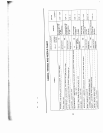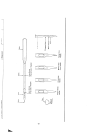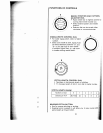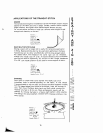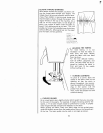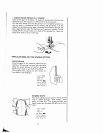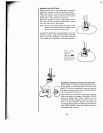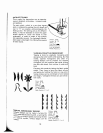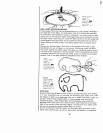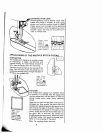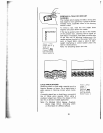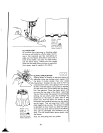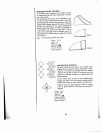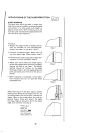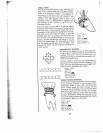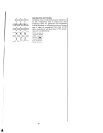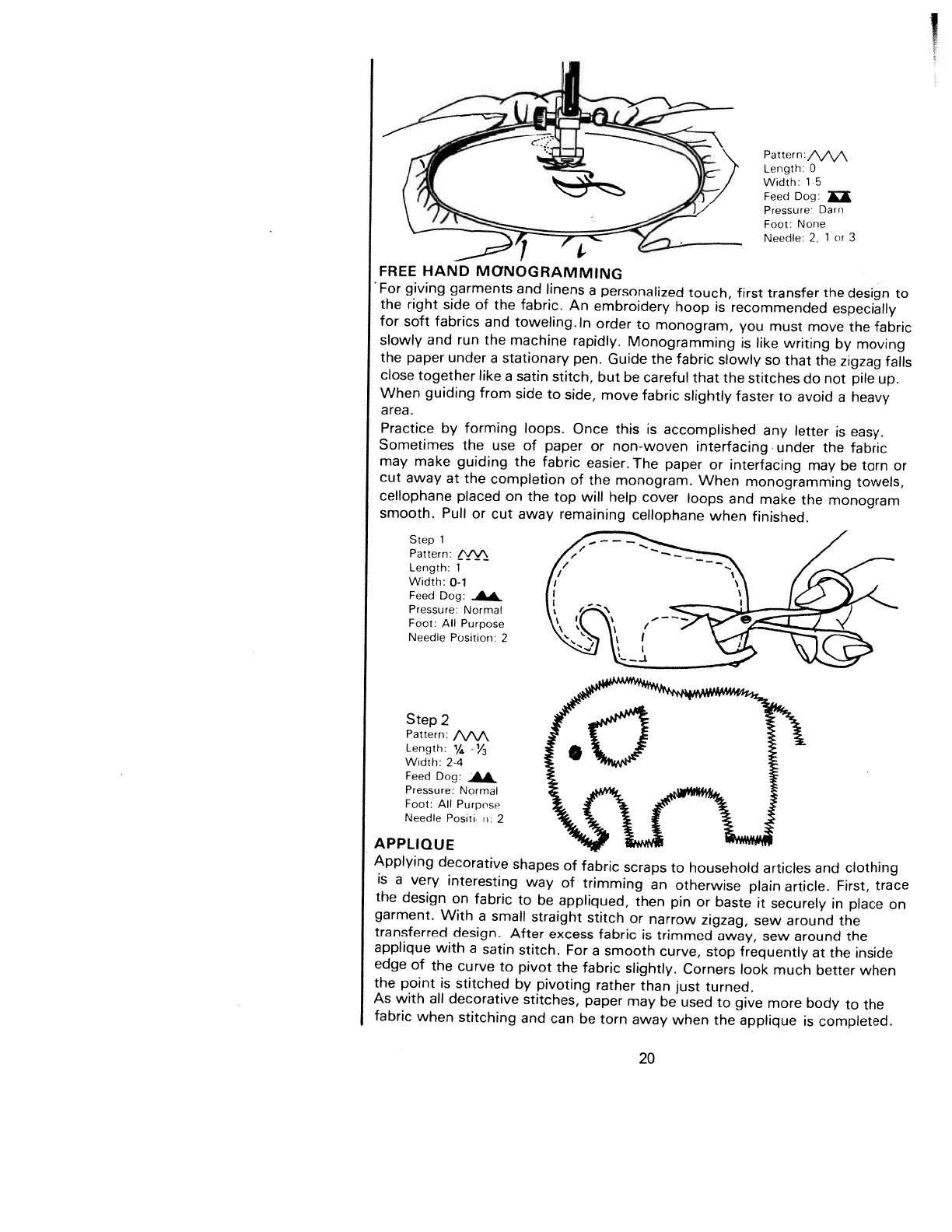
Pattern
:/‘V\/\
Length:
0
Width
15
Feed
Dog:
Pressure:
Darn
Foot:
None
Needle.
2,
1
or
3
FREE
HAND
MONOGRAMMING
For
giving
garments
and
linens
a
personalized
touch,
first
transfer
the
design
to
the
right
side
of
the
fabric.
An
embroidery
hoop
is
recommended
especially
for
soft
fabrics
and
toweling.ln
order
to
monogram,
you
must
move
the
fabric
slowly
and
run
the
machine
rapidly.
Monogramming
is
like
writing
by
moving
the
paper
under
a
stationary
pen.
Guide
the
fabric
slowly
so
that
the
zigzag
falls
close
together
like
a
satin
stitch,
but
be
careful
that
the
stitches
do
not
pile
up.
When
guiding
from
side
to
side,
move
fabric
slightly
faster
to
avoid
a
heavy
area.
Practice
by
forming
loops.
Once
this
is
accomplished
any
letter
is
easy.
Sometimes
the
use
of
paper
or
non-woven
interfacing
under
the
fabric
may
make
guiding
the
fabric
easier.
The
paper
or
interfacing
may
be
torn
or
cut
away
at
the
completion
of
the
monogram.
When
monogramming
towels,
cellophane
placed
on
the
top
will
help
cover
loops
and
make
the
monogram
smooth.
Pull
or
cut
away
remaining
cellophane
when
finished.
Step
1
Pattern:
/V”A
Length:
1
Width:
0-1
Feed
Dog:
_AA..
Pressure:
Normal
Foot:
All
Purpose
Needle
Position:
2
Step2
Pattern:
/‘/‘j\
Length:
1/4
‘/3
Width:
2-4
Feed
Dog:
A
Pressure:
Normal
Foot:
All
Purpnse
Needle
Positi
2
APPLIQUE
Applying
decorative
shapes
of
fabric
scraps
to
household
articles
and
clothing
is
a
very
interesting
way
of
trimming
an
otherwise
plain
article.
First,
trace
the
design
on
fabric
to
be
appliqued,
then
pin
or
baste
it
securely
in
place
on
garment.
With
a
small
straight
stitch
or
narrow
zigzag,
sew
around
the
transferred
design.
After
excess
fabric
is
trimmed
away,
sew
around
the
applique
with
a
satin
stitch.
For
a
smooth
curve,
stop
frequently
at
the
inside
edge
of
the
curve
to
pivot
the
fabric
slightly.
Corners
look
much
better
when
the
point
is
stitched
by
pivoting
rather
than
just
turned.
As
with
all
decorative
stitches,
paper
may
be
used
to
give
more
body
to
the
fabric
when
stitching
and
can
be
torn
away
when
the
applique
is
completed.
20



